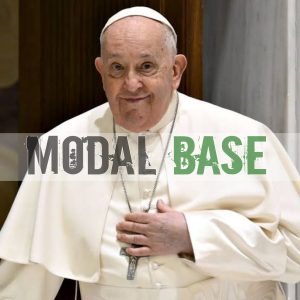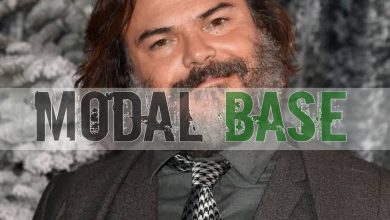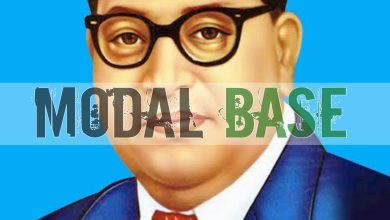Pope Francis Biography: Age, Wife, Children, Legacy, And Wikipedia

Pope Francis, born Jorge Mario Bergoglio on 17th December 1936 in Buenos Aires, Argentina, has become a symbol of humility and reform in the Catholic Church. As the first Jesuit pope and the first from South America, his leadership since 2013 has been marked by a focus on social justice, environmental stewardship, and interfaith dialogue. Known as the “People’s Pope,” he has inspired millions with his simple lifestyle and commitment to the poor and marginalised. This biography explores his remarkable journey, from his early life in Argentina to his transformative role as the head of the Catholic Church.
Also Read: Vasi Sachi Biography: Age, Wife, Nationality, Marriage, And Wikipedia
Pope Francis Biography
Pope Francis, born Jorge Mario Bergoglio on December 17, 1936, in Buenos Aires, Argentina, is the 266th pope of the Roman Catholic Church. At 88 years old, he is a global symbol of humility, reform, and compassion. Raised in a working-class family, he is the eldest of five children. His parents, Mario José Bergoglio and Regina María Sívori, were Italian immigrants who instilled strong values of faith and service.
Before entering the priesthood, Francis studied chemistry and worked as a technician. However, he felt a deep calling to serve God and joined the Society of Jesus (Jesuits) in 1958. He pursued studies in humanities in Chile and philosophy in Argentina, earning a licentiate in philosophy. Later, he studied theology and was ordained a priest in 1969. His early career included teaching literature and psychology while continuing his theological studies.
Francis’s rise in the Catholic Church was marked by dedication and leadership. He became the Archbishop of Buenos Aires in 1998, focusing on outreach to the poor and marginalized. In 2001, Pope John Paul II elevated him to cardinal, recognizing his commitment to social justice and pastoral care.
In 2013, Francis was elected pope, making history as the first Jesuit, the first Latin American, and the first non-European pope in over a millennium. He chose the name Francis, inspired by St. Francis of Assisi, reflecting his focus on humility, simplicity, and care for creation.
As pope, Francis has championed social justice, environmental stewardship, and interfaith dialogue. His encyclical Laudato Si’ calls for urgent action to protect the planet. He has addressed clerical abuse scandals, promoted transparency within the Vatican, and emphasized inclusivity in the Church. His leadership style is characterized by a personal connection to people, often seen in his outreach to the poor and his willingness to engage in open dialogue.
Despite challenges and criticisms, Francis remains a transformative figure in the Catholic Church. He has faced opposition from conservative factions while striving to balance tradition with modernity. His efforts to address global crises, such as the COVID-19 pandemic, further highlight his commitment to humanity.
Pope Francis’s legacy is one of reform, humility, and a deep connection to the people he serves. His life story continues to inspire millions around the world, offering lessons in compassion, leadership, and faith.
Pope Francis Early Life and Background
Pope Francis, born Jorge Mario Bergoglio on December 17, 1936, in Buenos Aires, Argentina, grew up in a working-class family. His father, Mario José Bergoglio, was a railway worker, and his mother, Regina María Sívori, was a homemaker. Both were Italian immigrants who instilled strong values of faith, humility, and service in their children. As the eldest of five siblings, Francis often took on responsibilities that shaped his character.
During his youth, Francis faced challenges that tested his resilience. He suffered a severe lung infection at the age of 21, leading to the removal of part of his right lung. Despite this setback, he pursued his education with determination. He studied chemistry and worked as a technician in the food-processing industry before feeling a profound calling to serve God.
Francis’s early experiences in Buenos Aires, a city marked by social and economic disparities, influenced his later focus on social justice and outreach to the marginalized. His upbringing in a multicultural environment also shaped his inclusive approach to leadership. These formative years laid the foundation for his journey into priesthood and his eventual rise as a global spiritual leader.
Pope Francis Calling to Priesthood
Francis’s journey to priesthood began with a profound spiritual awakening. In 1958, he joined the Society of Jesus (Jesuits), a Catholic religious order known for its emphasis on education, missionary work, and social justice. His decision to become a Jesuit was driven by a desire to serve others and deepen his relationship with God.
He pursued studies in humanities in Santiago, Chile, and later earned a licentiate in philosophy in Buenos Aires. During this time, he also taught literature and psychology, showcasing his intellectual curiosity and commitment to education. His theological studies culminated in his ordination as a priest in 1969.
Francis’s early ministry was marked by a focus on pastoral care and outreach to the poor. He worked in various roles within the Jesuit community, including serving as the provincial superior of the Jesuits in Argentina. His leadership during this period demonstrated his ability to navigate complex challenges, including political tensions during Argentina’s military dictatorship.
The calling to priesthood was not just a career choice for Francis; it was a lifelong commitment to serving humanity. His dedication to the principles of humility, compassion, and justice became the cornerstone of his ministry, guiding him through every stage of his ecclesiastical journey.
Pope Francis Rise in the Catholic Church
Francis’s rise in the Catholic Church was marked by his unwavering dedication to pastoral care and social justice. In 1992, he was appointed Auxiliary Bishop of Buenos Aires, and six years later, he became the Archbishop of Buenos Aires. In this role, he focused on outreach to the poor, advocating for social equity and spiritual renewal.
As Archbishop, Francis gained a reputation for his humility and simplicity. He chose to live in a modest apartment rather than the opulent episcopal residence and often traveled by public transport. His actions reflected his commitment to living in solidarity with the marginalized.
In 2001, Pope John Paul II elevated Francis to the rank of cardinal. This recognition was a testament to his impactful leadership and dedication to the Church’s mission. As a cardinal, he continued to champion issues such as poverty alleviation, interfaith dialogue, and the promotion of human dignity.
Francis’s rise in the Catholic hierarchy was not driven by ambition but by a genuine desire to serve. His leadership style, characterized by empathy and inclusivity, resonated with both clergy and laity. These qualities set the stage for his election as pope in 2013.
Pope Francis Election as Pope
Francis’s election as pope on March 13, 2013, marked a historic moment in the Catholic Church. He became the first Jesuit pope, the first from Latin America, and the first non-European pope in over a millennium. His election was seen as a reflection of the Church’s growing recognition of its global diversity.
The conclave that elected Francis was held in the wake of Pope Benedict XVI’s resignation, a rare occurrence in Church history. Francis’s selection was unexpected but widely welcomed. He chose the name Francis, inspired by St. Francis of Assisi, symbolizing his commitment to humility, simplicity, and care for creation.
Francis’s papacy began with gestures that set the tone for his leadership. He declined traditional papal luxuries, opting for a simpler lifestyle. His inaugural mass emphasized themes of service, compassion, and outreach to the marginalized.
The election of Pope Francis represented a shift in the Church’s approach to leadership. His focus on inclusivity, social justice, and environmental stewardship resonated with people worldwide. As pope, he has sought to bridge divides and foster unity, embodying the values that define his ministry.
Also Read: Harriet Tubman Biography: Age, Husband, Nationality, Family, And Wikipedia
Pope Francis Key Themes of His Papacy
Pope Francis’s papacy is defined by several key themes that reflect his vision for the Church and the world. One of the central themes is social justice. He has consistently advocated for the rights of the poor and marginalized, emphasizing the Church’s role in addressing inequality and promoting human dignity.
Environmental stewardship is another hallmark of his papacy. His encyclical Laudato Si’ calls for urgent action to combat climate change and protect the planet. This document has had a profound impact on global discussions about environmental responsibility.
Interfaith dialogue is a priority for Francis. He has worked to build bridges between different religious communities, fostering mutual understanding and cooperation. His efforts in this area have included meetings with leaders of various faiths and initiatives to promote peace.
Francis’s papacy also emphasizes inclusivity and compassion. He has sought to make the Church more welcoming to all, including those who have felt excluded or marginalized. His leadership style, characterized by humility and empathy, has inspired millions and brought renewed energy to the Church’s mission.
Pope Francis Major Achievements and Reforms
Pope Francis has implemented significant reforms and achieved notable milestones during his papacy. One of his major accomplishments is promoting financial transparency within the Vatican. He has taken steps to address corruption and ensure accountability in the Church’s financial operations.
Francis has also worked to address the issue of clerical abuse. He has implemented measures to protect victims and hold perpetrators accountable, demonstrating his commitment to justice and healing.
His encyclical Laudato Si’ is a landmark achievement that underscores his dedication to environmental stewardship. This document has influenced global discussions on climate change and inspired action to protect the planet.
Francis’s efforts to modernize the Church include initiatives to make its teachings more accessible and relevant to contemporary issues. He has emphasized the importance of pastoral care and outreach, encouraging clergy to engage with their communities.
Through his reforms and achievements, Pope Francis has demonstrated a commitment to renewing the Church’s mission and addressing the challenges of the modern world. His leadership continues to inspire positive change within the Church and beyond.
Pope Francis Challenges and Controversies
Pope Francis’s papacy has not been without challenges and controversies. He has faced criticism from conservative factions within the Church who oppose his progressive stance on issues such as social justice and inclusivity. Balancing tradition with modernity remains a delicate task.
The clerical abuse scandals have been a significant challenge for Francis. While he has taken steps to address the issue, some critics argue that more needs to be done to ensure accountability and prevent future abuses.
Francis’s efforts to promote environmental stewardship have also faced resistance from those who prioritize economic interests over ecological concerns. His encyclical Laudato Si’ has sparked debates about the role of the Church in addressing global issues.
Despite these challenges, Francis has remained steadfast in his commitment to his vision for the Church. His willingness to engage with critics and address difficult issues reflects his dedication to fostering dialogue and unity.
Pope Francis Legacy and Impact
Pope Francis’s legacy is one of transformation and inspiration. He has redefined the role of the pope, emphasizing humility, compassion, and inclusivity. His leadership has brought renewed energy to the Church’s mission and strengthened its connection to people worldwide.
Francis’s impact extends beyond the Catholic Church. His advocacy for social justice, environmental stewardship, and interfaith dialogue has resonated with individuals and communities across the globe. He has inspired action on critical issues and fostered a sense of shared responsibility.
As the “People’s Pope,” Francis has demonstrated a deep connection to the marginalized and vulnerable. His legacy is one of reform, humility, and a commitment to serving humanity. His life and leadership continue to inspire millions, offering lessons in compassion, faith, and resilience.
Pope Francis Age and Date of Birth
Pope Francis Age is 88 years old. He was born on December 17, 1936, in Buenos Aires, Argentina.
Pope Francis Wife
Pope Francis Wife does not exist. As a Catholic priest, Pope Francis took a vow of celibacy, dedicating his life to serving the Church and its followers without marrying or having children.
Pope Francis Real Name
Pope Francis Real Name is Jorge Mario Bergoglio. He was born on December 17, 1936, in Buenos Aires, Argentina, and later adopted the name Francis upon becoming pope in 2013.
Pope Francis Daughter
Pope Francis Daughter does not exist. As a Catholic priest, Pope Francis has taken a vow of celibacy, dedicating his life to serving the Church and its followers without marrying or having children.
Pope Francis Nationality
Pope Francis Nationality is Argentine. He was born on December 17, 1936, in Buenos Aires, Argentina, to Italian immigrant parents.
Also Read: Ebube Nwagbo Biography: Age, Parents, Husband, Son, Height, And Wikipedia
Pope Francis Death
Pope Francis passed away on Easter Monday, April 21, 2025, at the age of 88. He died peacefully at his residence in Casa Santa Marta, Vatican City, at 7:35 AM local time. His death was announced by Cardinal Kevin Farrell, who highlighted Francis’s lifelong dedication to serving the Church and advocating for the poor and marginalized. Despite health challenges in recent years, including respiratory issues and knee problems, Francis remained committed to his papal duties. His passing marks the end of a transformative era in the Catholic Church, leaving behind a legacy of humility, reform, and compassion.
Pope Francis Wikipedia
- Early Life: Pope Francis was born Jorge Mario Bergoglio on December 17, 1936, in Buenos Aires, Argentina.
- Jesuit Priesthood: He joined the Society of Jesus in 1958 and was ordained a priest in 1969.
- Archbishop of Buenos Aires: Appointed in 1998, he focused on outreach to the poor and marginalized.
- Cardinalate: Elevated to cardinal by Pope John Paul II in 2001, he gained global recognition for his humility.
- Election as Pope: Elected on March 13, 2013, he became the first Jesuit and Latin American pope.
- Environmental Advocacy: His encyclical Laudato Si’ emphasizes urgent action to combat climate change.
- Social Justice: Known for championing the rights of the poor and marginalized worldwide.
- Interfaith Dialogue: Promotes unity and understanding among different religious communities.
- Legacy: Renowned for his humility, inclusivity, and transformative leadership in the Catholic Church.
- Death: Passed away on April 21, 2025, leaving behind a legacy of compassion and reform.
Pope Francis Profile Table

| Profile | Information |
|---|---|
| Career | Pope of the Roman Catholic Church |
| Real Name | Jorge Mario Bergoglio |
| Age | 88 years old |
| Date of Birth | December 17, 1936 |
| Net Worth | Not known |
| Wife | Not applicable (took a vow of celibacy) |
| Children | Not applicable (took a vow of celibacy) |
| Parents | Mario José Bergoglio (father), Regina María Sívori (mother) |
| Religion | Roman Catholicism |
| State of Origin | Not known |
| Alma Mater | Technical Secondary School, Buenos Aires; Jesuit institutions in Chile and Argentina |
| Education | Diploma in Chemical Technology; Licentiate in Philosophy; Theology studies |
| Nationality | Argentine |








One Comment